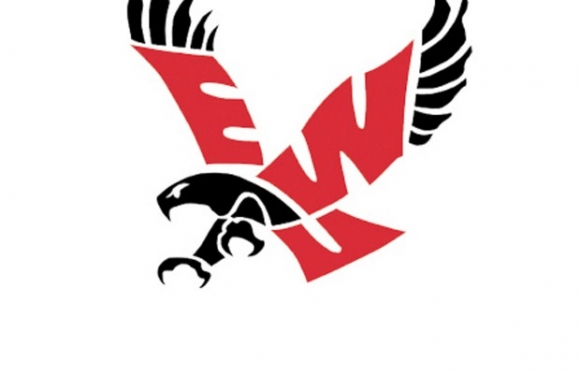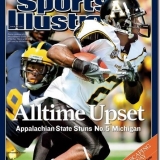More FCS Upsets = More Proof NCAA Is Irrelevant to Football
Published on 1-Sep-2013 by J Square Humboldt
Share this article

Anyone surprised by Eastern Washington's and North Dakota State's victories yesterday hasn't been paying attention.
For years.
The Eagles and Bison were the headliners as eight FCS schools registered wins over FBS members. True, Samford's triumph over Georgia State and Southern Utah's besting of South Alabama are part of this total because the clubs they conquered have only recently moved up to FBS status, but that's the point.
The gap between programs in those classifications continues to narrow. It's a glacial pace, but it's happening. There's only one area where it isn't.
Money.
Of course, that's a complex issue. In more ways than one.
Success on the scoreboard was actually Priority 1B for the likes of Eastern Washington, North Dakota State, James Madison, and Appalachian State.
Ah yes, the Mountaineers. They certainly made history at the time:
Priority 1A for these and every other FCS team venturing into an FBS stadium is the guarantee. Eastern Washington picked up $450,000 from Oregon State. North Dakota State cashed $350,000. Other paydays elsewhere are much richer than those.
Those financial windfalls are essential to most FCS programs. But are they vital? Not sure. Upsets such as this past weekend's were a result of many factors. For example, FBS scholarship limits have eroded from 105 to 85 while FCS quotas are still at 63; that's 20 players per FBS team that needed somewhere else to go. Some of that trickle-down benefitted the so-called smaller schools. With their scholarship limits static, the extra cash helped, but these are programs that have learned how to survive -- and sometimes thrive -- with less.
Maryland could learn from that. And they're not alone. The Terps' move to a more lucrative conference will soon prove to be a stopgap measure, and they'll still be struggling to keep up with the big-brand powerhouses just as the Iowa States and Washington States of the FBS world continue to do.
Where does the NCAA fit into all this? Well, at one end of the spectrum, it doesn't.
The big bucks from media rights flowing into college coffers is becoming more sharply focused on the big-brand programs. Alabama vs Ohio State will draw great ratings these days; Mississippi vs Minnesota won't. ESPN now choreographs regular-season match-ups so they've got something attractive to offer. What choice do they have when the Tennessees and Texas A&Ms of this world back out of return engagements to Oregon?
Could the NCAA do something like that?
Hell, the NCAA can't even throw its book of redundant rules at a college sophomore who sells his celebrity for hard cash!
Big-brand football programs decided long ago they didn't need the NCAA. That's how the BCS came to be.
It's only a matter of time before they loosen the ties further, if not sever them once and for all. The NCAA will be powerless to stop it.
This scenario is not without precedence, at least in part. In 1990, the largest soccer clubs in England decided they didn't need to share revenues equally with the other 72 clubs in the Football League, and with the impetus of TV money, they broke away and formed the Premiership. They allowed the promotion-relegation 'ladder' to continue to account for additional drama at season's end and the unanticipated rise and fall of team fortunes.
The Premiership is now the richest sports league in the world.
There's talk of the next step in college football evolution being four 16-team super-conferences. If so, it won't be the last. The aforementioned Cougars and Cyclones will ultimately be winnowed out with thirty-or-so others. The only hold the NCAA really has on big-brand programs is basketball's Big Dance, but that's a symbiosis that can be negotiated. Current lucrative media deals via the big conferences are holding back radical action, but only university presidents trying to reconcile the entertainment world within their ivory towers are keeping the secession discussions from escalating.
Far-fetched, you say? Well, ask your elders if anyone in the 1940s ever thought Army would be an afterthought in college football.
The state of North Dakota is awash with cash these days. That bodes well for the Bison's alumni donations. Maryland should be so lucky. The NCAA is surely struggling with re-defining its role right now. It might be well served to let the big fish go and focus on a Division I without AQ conferences and no distinctions like FBS and FCS.
Yes, the FBS was still winning 82% of their FCS match-ups prior to this season. But just as the impact of scholarship limits took time to be felt at the Division I-A schools now suffering upsets on the field, the arms race currently underway among big-brand football programs will take its toll, too. As a result, more and more FCS schools will find themselves on equal footing with a significant number of their FBS brethren.
If the NCAA wants to remain relevant in football, it had best align itself with the schools that need its services in such a way that those services provide benefit as much as delusional omnipotence.





